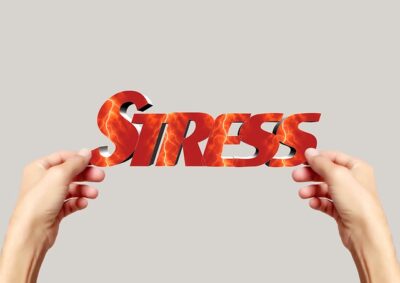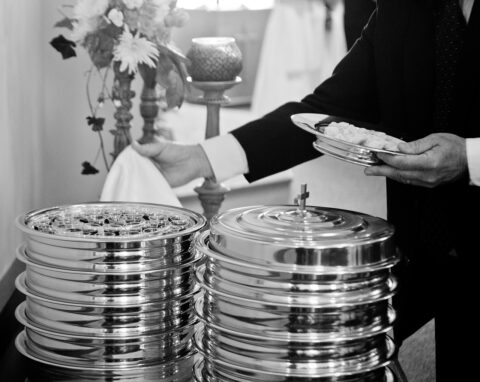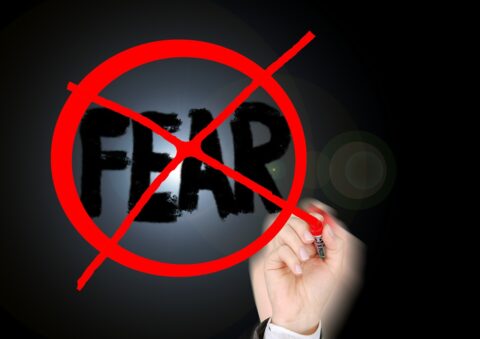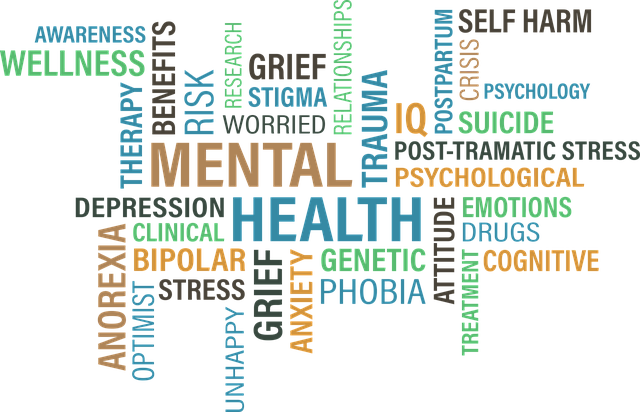I am working on learning to be vulnerable and honest about what it is like to live with depression and anxiety. However, the world at large is not a safe place in which to be vulnerable. That is why I write under a pen name. I can be honest and open with the world and yet be protected. That is the beauty of this site, this ministry of healing, this safe place. No one can hurt me when I’m vulnerable here.
So, today I’m going to be real honest and open. I’m going to give my readers a chance to view the results of 35+ years of spiritual abuse, that eventually morphed into physical abuse, verbal abuse, psychological, and even sexual abuse. I’m learning that no human can pass through the fire without being burned. Everything I have faced has left scars, wounds, and horrifically altered my being forever.
Sitting with a friend over a meal recently, she shared her agnostic beliefs with me and asked me specific questions about what I believe, after all I’ve been through at the hands of religion. I told her, remarkably, “I don’t know what I believe anymore. There were so many lies. So much deception. So much pain and betrayal. The only thing I know is that I believe there is a God, and I believe that Jesus is the son of God who came to earth to die for our sins. Beyond that, I do not know anymore what I believe.” In that moment, I felt so odd. I wondered “How did I get here?” I felt a bit like a “heathen,” given the many years of indoctrination I had, and the fervency of my dedication to the cult for many years. On the other hand, there was a feeling of peace and realization, that, in mainstream religious circles, I’d just stated the very essence of being a Christian. It made me realize that I hold onto what really matters and the rest is now fluid for me.
Research
I was at a training event for work last week, where the effects of fear on the brain were related by an expert. The results were astonishing. When a person lives in a constant state of fear for a period of time, the brain produces large amounts of cortisol to counteract the stress and provide balance. Early life stress disturbs the hypothalamic-pituitary-adrenal axis, and this can cause a person to be more likely to have psychiatric issues as an adult (Carpenter, Shattuck, Tyrka, Geracioti & Price, 2011). In some severe cases of abuse, the child’s development is interrupted and their brain develops permanent damage due to the abusive actions of adults in their lives. They develop severe mental illness that can cause them to become psychotic, or to become a psychopath or sociopath. This is interesting, in light of the phrase that I heard after my children were abused by their father. I was still in the cult, and the preacher involved did not like it that my children and I couldn’t just “snap out of it” after escaping the abuser. He once made a statement that “so you were abused. Get over it. Many people have been abused.” Obviously this was an uneducated and asinine comment.
There is a reason for the depression and anxiety seen in my own life and that of many other victims of spiritual abuse whom I’ve encountered. There is a scientific explanation. People who experienced greater amounts of childhood emotional abuse also have more increased depression symptoms, especially when they have ongoing life stressors. Therefore, studies have shown that emotional abuse is truly a risk factor in our reaction to stressful life events (Shapero, et. al., 2014). Spiritual abuse has not been studied as much as other forms of abuse, but it definitely has an emotionally abusive element. It has been discovered, however, that spiritual abuse has many different facets and layers of experience that affect the biological, psychological, and social, as well as the spiritual realm of a person (Ward, 2011).
For those of us raised in a cult, many of us suffered various types of abuse, both in childhood and as adults. It is no wonder, then, that we suffer from depressive symptoms, anxiety issues, and sometimes even more debilitating mental issues. In my personal experience, adjustment disorders have plagued me throughout my adult life, exhibiting with both depressive and anxious symptomology. Here, I want to describe what it is like to feel these symptoms in relation to the past spiritual abuse and emotional abuse combined:
Depression is a dark, weighted cloud that sits on my soul. It consistently tells me there is no hope, and it holds me in misery. I can’t shake the sadness, or the feeling that my life is over… wrecked… beyond repair. I’m able to pinpoint that these religious leaders and specific abusers from my past have ruined my life, but I also feel completely broken and inept at everything in life. I can be making straight A’s, functioning at a high level, as far as daily living, and still feel like I am a complete and utter failure.
I sometimes feel I’m doomed to this darkness drowning my soul forever. I often cannot feel anything outside of an emotional numbness that causes me to be unresponsive to what is going on around me. Sometimes it becomes a pervasive sadness that has me crying over everything that happens, even if it isn’t a negative event. At times, it keeps me from feeling happy or celebrating clear victories or positive events. The inner voice plays down the positivity.
Many times when the depressive feelings overwhelm me, I feel the urge to kill myself. The most common feeling is to have this strong impulse to stab myself in the chest–likely because my emotional heart is feeling so much pain it feels like I’m already being stabbed in the heart inside, but there is no one to witness the event or care. Shame messages from childhood and religious leaders haunt me. I’m flooded with messages such as “you wouldn’t be in this situation if” and “it is all your fault for leaving the church.”
Other thoughts that commonly flood my mind at those moments include “You are a hot mess,” “you are too sensitive,” “you need to pray through,” “things will never be better–you are scarred for life,” “who do you think you are to think you deserve better?” “you are just an emotional female,” “I wish I were a logical male,” “what if my problems are a punishment for not being good enough,” “I wish I could have more faith,” “I’m not a strong person. A truly strong person could live up to all of the rules to earn the blessings of God.” Many other thoughts flood my mind in those dark moments.
I usually feel physically heavy, especially in my chest. I often get a headache. I don’t have any energy to be productive during these moments, and often I just feel like sleeping to hide from the world. Sometimes I will eat large quantities of chocolate or other comfort food to try to alleviate the pain. When going about daily life, in that state, I often have impulses to pull out in front of a fast approaching semi truck, run my car into a telephone pole, jump off of a cliff, run away from everyone I know and live out of my car with my children, or some other equally harmful impulse. Instead, when I get to that point, I go to the doctor and get an anti-depressant so that I can function and cope with the stress.
However, I know many others who cut themselves to find release, or contract eating disorders that cause them to binge, purge, or both. Others who are afraid to get medication may self medicate with alcohol or illegal drugs. Some have difficulty holding down jobs or meeting daily living demands due to the crippling depression that they cannot shake. When we feel this kind of depressive symptoms, we feel horrible and it makes us snap and growl at those around us who love us. Sometimes it can drive them away, yet we truly need their unconditional love more than anything else in these moments.
Anxiety has often been described to me as the “flip side of the coin” in regards to depression. I have noted that this is often the case in my own life. My medication keeps the depression at bay for the most part, but the anxiety will often trigger depressive symptoms or vice versa. Anxiety is terribly painful as well. Sometimes there are panic attacks, where my chest hurts as if I’m having a heart attack. I will become short of breath, feeling like I could possibly pass out or die. I will often become dizzy and the anxiety level is so high that I’m terrified and cannot find a reason for the anxiety at times. Sometimes my legs will become shaky, or my hands will shake uncontrollably. All of these things are signs of a panic attack and are not anything I’m in control of, but are physical symptoms of the high levels of stress hormones produced in my body.
Common triggers to a panic attack occur in church services–comments made, guilt inducing messages, judgmental comments, anything that takes me back to my spiritually abusive past. These physical responses are my body’s way of telling me that I’m in danger again. Anxiety also makes me fearful, hyper vigilant, and pours energy into my body through adrenaline. I will have bursts of highly productive energy induced by stress, followed by extreme tiredness and inability to stay awake. Sometimes there is an impending feeling of doom that has no concrete basis in real life.
Thankfully, I am able to know that my body and my feelings are betraying me and I can differentiate between reality and the panic. However, many people cannot tell the difference and too much anxiety can lead people to become delusional. Because of the bursts of adrenaline and the body’s need to relax afterwards, people who suffer from anxiety can appear erratic or inconsistent in their productivity. Some people have lost jobs, or at least been marginalized by society for the inconsistent patterns of functioning that are observable in their lives. In my case, when I had the severe panic attacks over several days time, my doctor prescribed a few pills of a low dose anti-anxiety medication. However, I took only two and kept the rest for future reference, as anti-anxiety medications are commonly abused and can be addictive. I generally use relaxation techniques to reduce my anxiety levels. Yet some people experience such severe anxiety that they have to have an ongoing anti-anxiety medication.
I have learned some very helpful coping skills to deal with my depressive and anxious symptoms. I have been blessed to have several amazing therapists who have helped me learn to cope better with the stress. Many others do not have the luxury of truly helpful professionals to aid them in managing their symptoms, and they suffer from far more debilitating symptoms as a result.
The conclusion of my emotional/mental responses to my past abuse is that I have finally come to terms with the fact that I do have scars that may never go away. I am prepared to take medication for the rest of my life, if that is what I have to do to function and have a happy life. I no longer feel shame about seeing a therapist, and I do so as much as needed…as long as my insurance covers it. My friendship field is smaller than some, due to mental health stigmas, but I have honest, loyal, and trustworthy friends who support me.
I have vowed to NEVER, EVER darken the door of another church in the abusive religious group I escaped, other than my own family member’s funerals–and even then, I’ve given myself permission to get up and leave when I feel threatened. I attend church only when I feel capable of handling any triggers, and I reserve the right to get up and leave if I feel stressed. I talk to God about my stress and my past, as well as my current beliefs, and I feel that He understands the resulting chaos of religious leaders who abuse…after all, Jesus was personally acquainted with the Pharisees, and angered by the way their actions affected the people. Occasionally I try something new that is legal but was “forbidden” by my church growing up. If I like it, I make it part of my life. If I dislike it, I choose not to do it in the future.
Overall, I focus on enjoying the freedom to say “no,” or to accept things without the ruling of any spiritual or familial leader telling me what to think or do. I feel angry and bitter at leaders who have hurt me in the past–yes I do–but I work on letting these things go and focusing on my own health and recovery from abuse as much as possible. At times there are new stressors or events that take me right back to the past I’m trying to avoid. In those times, I give myself a lot of patience and I refuse to feel guilty as I process my anger and fury for what happened. Then, as soon as I can, I try again to put the past behind me and keep living in the present.
This is my journey. Yours will be different.
Carpenter, L., Shattuck, T., Tyrka, A., Geracioti, T., & Price, L. (2011). Effect of childhood physical abuse on cortisol stress response. Psychopharmacology, 214 (1), 367-375.
Shapero, B. G., Black, S. K., Liu, R. T., Klugman, J., Bender, R. E., Abramson, L. Y., & Alloy, L. B. (2014). Stressful Life Events and Depression Symptoms: The Effect of Childhood Emotional Abuse on Stress Reactivity. Journal Of Clinical Psychology, 70 (3), 209-223.
Ward, D. J. (2011). The lived experience of spiritual abuse. Mental Health, Religion & Culture, 14 (9), 899-915.
********
Shop at our Amazon store! As an Amazon Influencer, this website earns from qualifying purchases.





